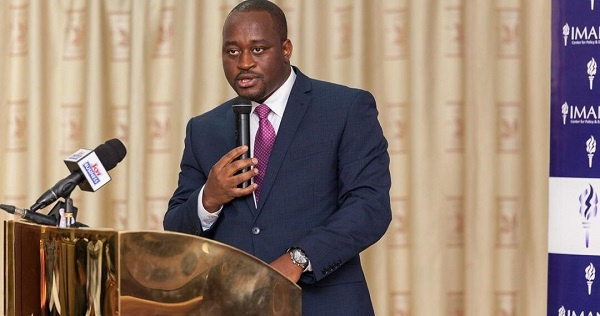An Economist and Political Risk Analyst, Dr. Theo Acheampong has noted that Ghana’s recent electricity and water tariffs are not cost reflective in order to help solve debt crisis at the energy sector.
Dr. Acheampong explained that since the year 2018 which was when the last major tariff review was conducted, it took over 2 years for the review tariffs to reflect on the energy sector.
He explained that the aforementioned challenge co-existed with other factors such as Cedi depreciation and cost of fuel that needed to be imported.
The expert noted that if the country is unable to recover enough of whatever it is producing and selling, it stands to continue facing its present challenges.
“Currently, the tariffs that we are paying is not cost reflective. Since 2018 when we did the last major tariff review, it took almost two and a half years, there was no review and if you recall even during the Covid time tariffs did not even go up at all.
“But at the same time you have your cedi doing whatever its been doing in terms of the depreciation. You’ve got issues with the cost of fuel that you need to import. So if what you’re producing and selling, you’re not able to recover enough of that then you’re going to end up in a problem where you may have to then cover that shortfall,” he said on Newsfile on Saturday.
According to the economist, both the National Democratic Congress (NDC) and the New Patriotic Party (NPP) have been twisting the conversation on the energy crisis to suit their own agenda.
Speaking on another factor responsible for the debt crisis, the expert emphasised distribution losses within the sector.Dr. Acheampong said that about 26% which accounts for a quarter of power generated by the Electricity Company of Ghana (ECG) cannot be accounted for.
He lamented the need to device mechanisms to recover such losses.
He reiterated that the reason individual power producers (IPPs) are threatening to halt electricity flow is due to the fact that revised tariffs have not been cost reflective and that there is are major distribution losses.
To remedy the devastating situation, the expert is advising the government to go according to the fifteen specific measures recommended by the International Monetary Fund (IMF) for Ghana’s energy sector recovery.
The economist is optimistic that government will be compelled to implement such directives since they have been prescribed by the IMF as part of the conditionalities underpinning the country’s bailout programme.
Source: Dehotpress
Thank you for reading from Dehotpress, a Ghanaian news website.
You are welcome to share this story on Facebook, Twitter, Instagram, etc., and you can also follow us there.











































